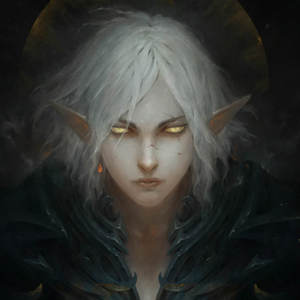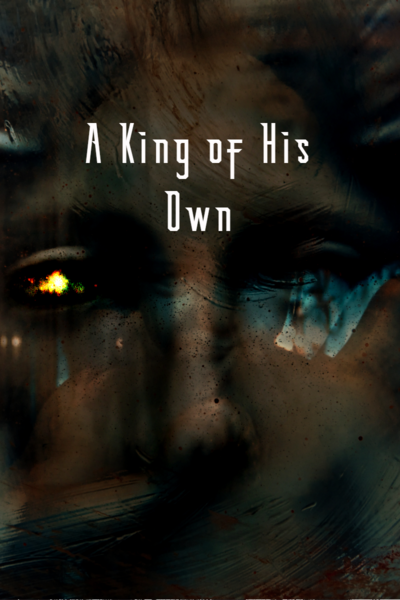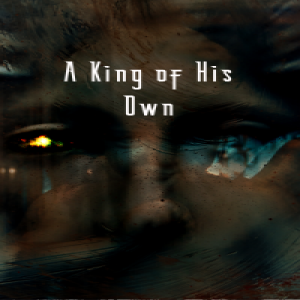Twenty minutes later they arrived at a camp set upon a hill and the surrounding field. Hundreds of tents of cotton and oiled linen had been erected on the grass, with campfires between them and soldiers of all ranks and social class busy with their duties. Men carried supplies to and from wooden wagons, and the smell of sweet wine and roasting meat made Caden’s mouth water. “I must see to the king,” Caden told Anselm, dismounting his horse and leaving it to be taken away by one of the camp supervisors.
“If me and my men are to get in trouble for following along with your outing,” Anselm said with a grunt, “do us the courtesy of giving us fair warning so we can oil our arses for the spanking.”
Caden grinned, then slapped the old knight on the back of the shoulder. “Take care of the prisoners, would you? And try and get them to say something useful,” he said.
“Worry not about that, sire. We’ll give them drink until they’re singing their darkest shames,” Anselm said with a grin, before leading his men and the prisoners away to another part of the camp.
Caden was suddenly alone in a sea of people. He began walking to the top of the hill, passing men preparing stakes for the camp defence, and a priest holding a small gathering of prayer that dozens of men attended. Every so often men would lower their heads to him and address him as sire, lord, or prince. Even men much older and more accomplished gave him respect that he knew by all rights he had not yet earned, though he could not say he disliked it. In many ways he considered it a debt, and it solidified in him a desire to pay it back with interest. If they were to treat him as a man greatly esteemed, then let him at least do something worthy of it. Caden did not march directly to his destination, but lingered and travelled slowly around the hill's base to find the shallowest slope of ascent. He spoke to knights he knew, greeted soldiers, and paused several times to simply watch.
When he did finally reach the top of the hill Caden saw the command tent, a large and white pavilion with red trimmings. Two large flaps covered the entrance, but when the wind allowed he could spy through the gap to see important men stood at a table and conversing. He knew that his destiny lay within, but in a final act of procrastination he turned away from it and looked at the view the hill afforded. How many hundreds of tents were arrayed below he couldn’t say, but there must have been over a thousand, if not two. They didn’t just house soldiers either, but squires and camp followers whose only job was to maintain and support the army. There weren’t just men; hundreds of crates of chickens, flocks of sheep and goats, horses for riding and war, donkeys for pulling wagons and carts, and even white doves. A city had been built there the previous day, but he knew soon it would be torn down and its people moved on to different pastures. A good thing too, for the land already looked drained of its resources.
“Caden!” A voice called out to him. Caden turned to look at its source, a young man who had just barely become one and who shared his green eyes and high cheek bones. The young man wore a suit of plate and had a longsword strapped to his waist, but Caden’s eyes were drawn to his sand coloured hair – it was freshly cut short, where the last he had seen him it had been as long as his own.
“Ah, good afternoon Arian,” Caden greeted. “I see you’ve grown your hair shorter. An unusual choice my young brother, though I cannot say it’s strange-looking nature does not match your own.”
“I see you are in a jesting mood,” Arian replied. “I would savour it while it lasts, for our father’s sour one will soon ruin your own. Where did you go? We have had men out looking for you.”
“I went for a ride. Sir Anselm and his men accompanied me, and we encountered and engaged a Lavellan patrol. We returned with prisoners.”
“You have seen combat today?” Arian asked, and Caden could tell from his tone that he was trying to hide disappointment.
“I have, though it wasn’t much.”
“You need to go and see father. He delayed the war council by several hours waiting for you to arrive, but he would not delay forever. It will start soon.”
Caden gave his brother a nod, then began walking towards the tent. Arian joined at his side and as they crossed the field towards the command pavilion clouds passed in front of the sun, filling the area with shade. Caden was walking purposefully slow, wanting to delay as much as possible.
“How are you finding your armour?” Caden asked.
“I’m slowly getting used to it. Lord Wulfsurd suggested I wear it around camp, so that when battle comes it is as like a part of me.”
“And your hair? Was that also Lord Wulfsurd’s idea?”
“It was. ‘Leaves the bastards less to grab on to’,” Arian quoted, his impression of Wulfsurd’s midland’s accent uncanny.
“I know you are eager to fight, Arian, but I would rather you be kept out of it,” Caden told him. Arian wanted to protest but it was too late, Caden had entered the command tent and let the flap fall behind him. Arian sighed and raised it himself, ducking under and into the commotion within.
Inside the tent at least fifteen men were talking amongst themselves, lords and commanders all. Some stood around a table that had a large sheet of parchment and an inked map, while others sat at chairs around the periphery. Several of them wore bold-coloured tunics with linings of fur, but most wore chainmail or thick gambeson. When Caden and Arian entered the tent they were fully armoured in chain and plate steel and almost looked out of place, as though they were prepared and expecting combat at any moment. Their arrival caused silence to fall across the gathered men, except for one sat by himself at the side of the room who looked up at them and let out a short chuckle.
Caden knew most of them, but even those he hadn’t met he had been made privy to. They were dukes, earls, barons and knights all, with lands and titles and stakes in this war of theirs. Half the Sarkanian nobles were in the war camp and Caden couldn’t help but realize that an attack on them now could be devastating for their homeland. “My lords,” Caden greeted them with a nod. They answered with bowed heads and pleasantries, but an awkwardness hung in the air like a stagnant smell. They must all have known of his father’s apparent displeasure, though Caden couldn’t help but note that the king wasn’t there with them.
“Where is the king?” Caden asked.
“We’re told he’ll be here presently,” said the grey-haired Lord Gray, Duke of the Midlands.
Caden nodded and then led Arian to find their places at the table. Arian was quieter than usual, looking around at the nobles but not engaging them, and Caden noticed this. It wasn’t unsurprising – it was his first march, his first war camp, and the possibility of his first battle hung over him. He had every right to be quiet.
Suddenly the tent flap opened and in walked a tall, well-built man. He was in his mid-fourties, with shoulder-length brown hair and an inch of beard that filled his jaws and lower cheeks completely. Caden’s eyes met his own, and suddenly he felt small again. The man walked around him to the end of the table, and though not a word was spoken to him he felt a thousand words of disapproval. Caden leaned against the table on his hands and closed his eyes as the figure spoke.
“Good afternoon, my lords,” said King Valen II of Sarkana, as he looked around the room at each in turn. “I’m glad you could all join us for this session. My sons Caden and Arian, I’m pleased to see you both. As I’m sure you’re all aware, this is Prince Arian’s eighteenth summer, and his first march. I’m sure he is nervous, as we all were at first, but he is a skilled and talented warrior and I have no doubt that he will prove a great asset to this army and its cause.”
The Lords all looked at Arian, their eyes trying to find the truth in his father’s words. Caden opened his own eyes, now examining the map before them in silence as the final few gathered round.
“I would like to start by revealing our next play. We will not remain camped here for several more days as was our previous plan, but instead continue our march and seek out better ground. We have reason to believe that the Lavellan now have an approximate idea of our location, which means that we must move,” Valen told them.
“Why must we move?” Asked Lord Gray, his finger pointing at their location on the map. “The woods to our east afford us some protection from an attack, and our camp here is set on high ground. Why not simply fortify our position and wait? Let them tire themselves marching to us, then meet them when they arrive. If things do not go as planned we can retreat to this position and regroup behind camp walls. We would have several days to prepare at least.”
“I don’t think that strategy would work, Lord Gray,” came another voice, deep and of considerably less noble quality than many of the others in the room. It was Lord Wulfsurd, the bear of a man with short red hair, an unshaven face and a distinctly midland’s accent. “We know that their main force is a week away eastward, but they also have a garrison and men-at-arms at Formere to the north. If their forces were to combine or co-ordinate our disadvantage would grow, and we would be open to attack from two directions. But more than that, we risk turning this into a siege and trapping ourselves here like mice.”
Lord Gray looked across at Lord Wulfsurd. “Even a cornered mouse can bite hard enough to make the cat flee,” he said, his tone unnecessarily intense. “We could plan to fight on this ground and prepare it for their arrival. I see no reason why we should move from this place.”
“There’s not enough here to sustain us for long,” said Caden. “Look outside. Look at the edges of this camp. There’s not enough game to catch here, not enough food to forage. We would start eating into our supplies and our foragers and hunters would be forced to travel farther each day to keep them at their current levels. It may sound counter-intuitive but the longer we stay in this camp, the shorter we can stay in this country.”
Wulfsurd looked at Gray with raised eyebrows and a finger pointed across to Caden, in clear agreement with him. Gray gave out an audible sigh but had no counterargument, so instead looked to the king for his response.
“Let us assume that King Armand will march his army west to meet us, in which direction should we then go?” Valen asked, his question almost rhetorical in tone.
“I see only one option,” spoke another voice. This one belonged to a man who was thin, bald and clean shaven. He didn’t elaborate on his ‘option’, instead he paused to look at the map with sharp eyes and consider his next words.
“What option is that, Lord Colbert?” The king asked him, noticing the break in the flow of discussion.
Lord Colbert hummed for a moment, then began tapping on the map to the east. “We know that King Armand is an intelligent and accomplished military commander. Indeed, there are not many battles in which his forces have known defeat. Our own King Valen is of similar repute, and Armand knows this. We also know that Armand will not sit idly during our campaign, but rather strive to gather all his forces and meet us at a moment that suits them and when they have the advantage of a larger force. Let us consider then that Armand expects us to make the most strategically sound decision in this situation, which is to march north towards Formere and defeat the smaller force that he assumes we believe is marching to combine with his own.”
Again, Colbert paused. “It is considered,” Valen told him. “What then is your suggestion?”
“That we do what he does not expect, and march east instead. Armand will expect us to go north, so his force at Formere will not be marching here at all. Indeed, I doubt they have even left the safety of their walls. Should we march north, we would have no choice but to lay siege to a fortification that is currently preparing for it. We would be stuck there, until Armand arrived and destroyed us. I say we go directly to Armand himself and challenge him on the field. He will be taken by surprise, his army will falter and with our common discipline and valour we will beat him,” explained Colbert.
Several of the lords looked at each other across the table, including Valen and Wulfsurd, and after a moment Wulfsurd raised his brows in pleasant surprise. “It would force him into a decisive battle he wouldn’t be entirely prepared for,” Wulfsurd agreed. “If we won, he might even surrender.”











Comments (0)
See all